A Block Level Collaborative Convention on the Meghalaya Early Childhood Development Mission and Rescue Mission was held on the 18th of March, 2023, at the Common Facility Centre in Lumroman Village, Umsning Block, Ri Bhoi District. The convention aimed to involve key stakeholders from the community, including village leaders such as the Headman, members of the Village Employment Committee (VEC), Village Organization (VO), and Village Health Council (VHC), as well as government officials at the state, district, and block levels.
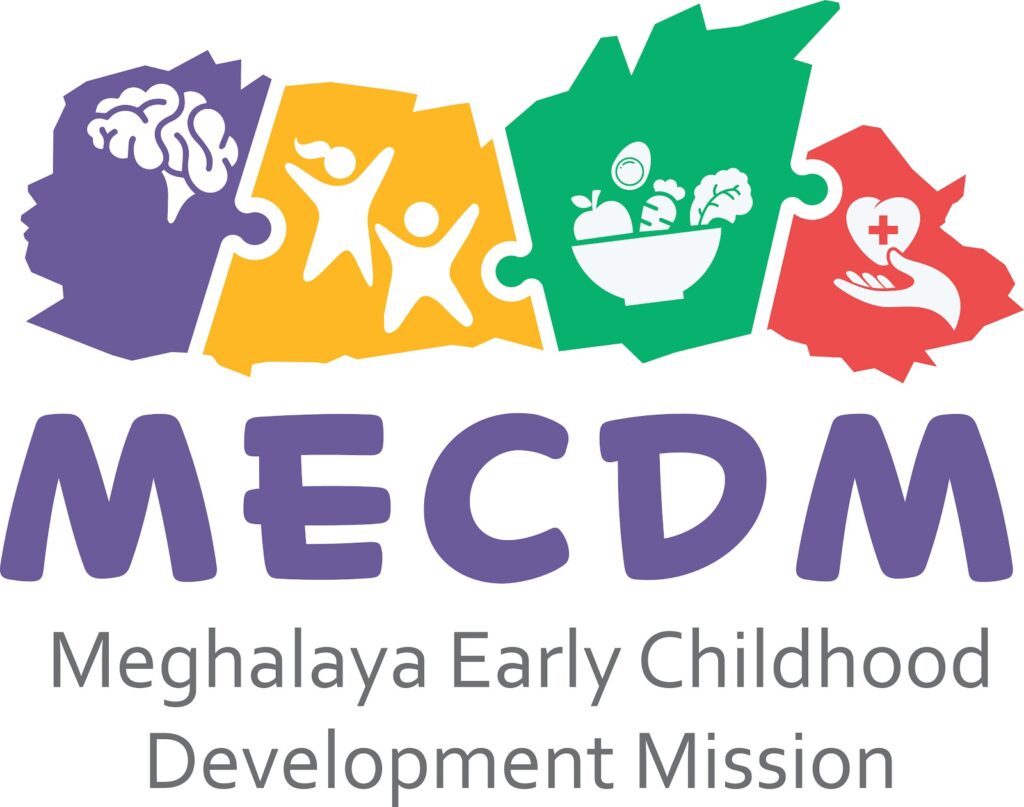
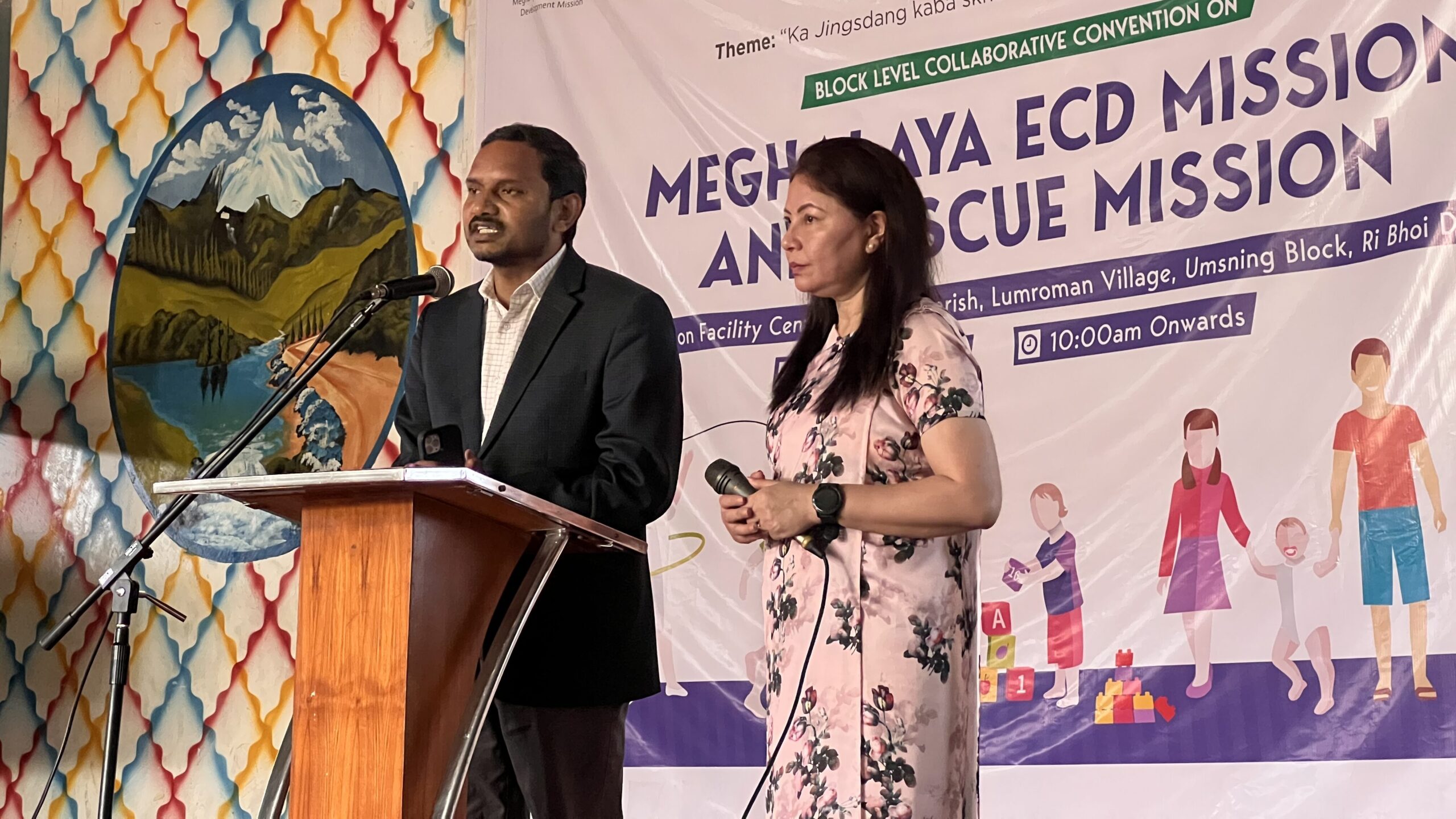
The day started with an introduction to the Early Childhood Development (ECD) mission, setting the context for the importance of providing a positive environment for children’s growth. This was followed by playing the brain-wiring game, which is meant to demonstrate the importance of early childhood care for a child’s brain development. The program included the screening of an ECD video and reflections from attendees on various activities related to ECD.
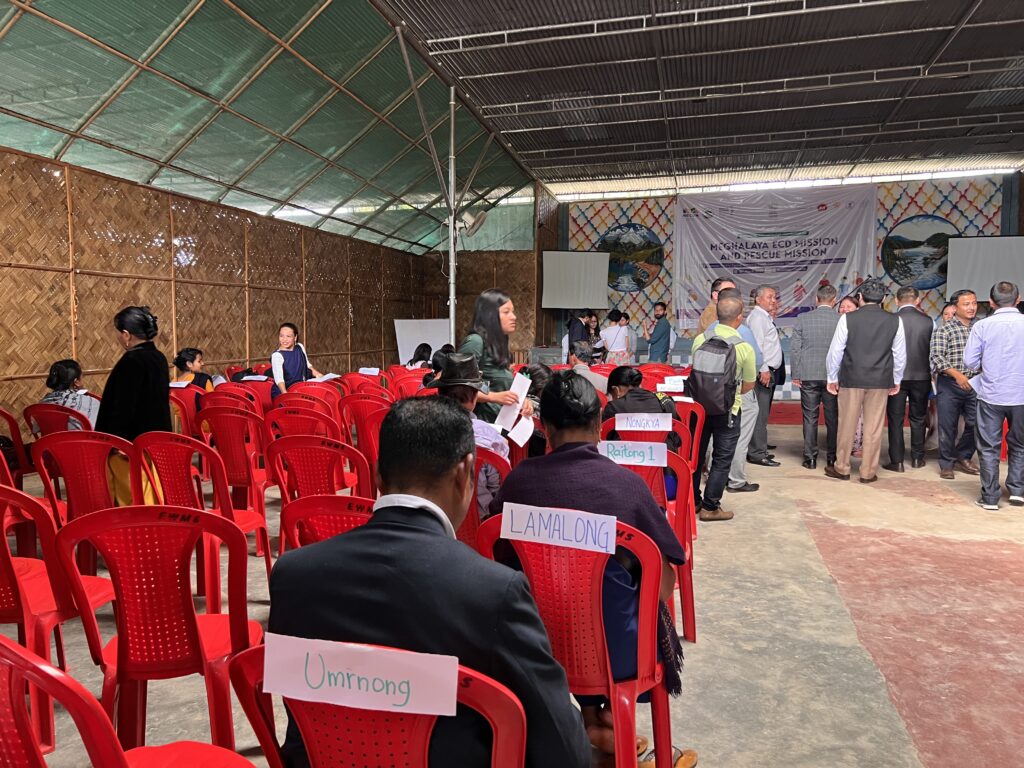
The participants were selected from villages with high school dropout rates, high rates of Severe Acute Malnutrition (SAM) and Moderate Acute Malnutrition (MAM), and high Infant Mortality Rate (IMR) and Maternal Mortality Rate (MMR). The objectives of the convention were to orient participants on the importance of ECD, and the role of the community in implementing the ECD mission effectively. The convention provided a platform for collaboration and discussion, enabling participants to contribute to the planning and implementation of effective ECD strategies in their communities.
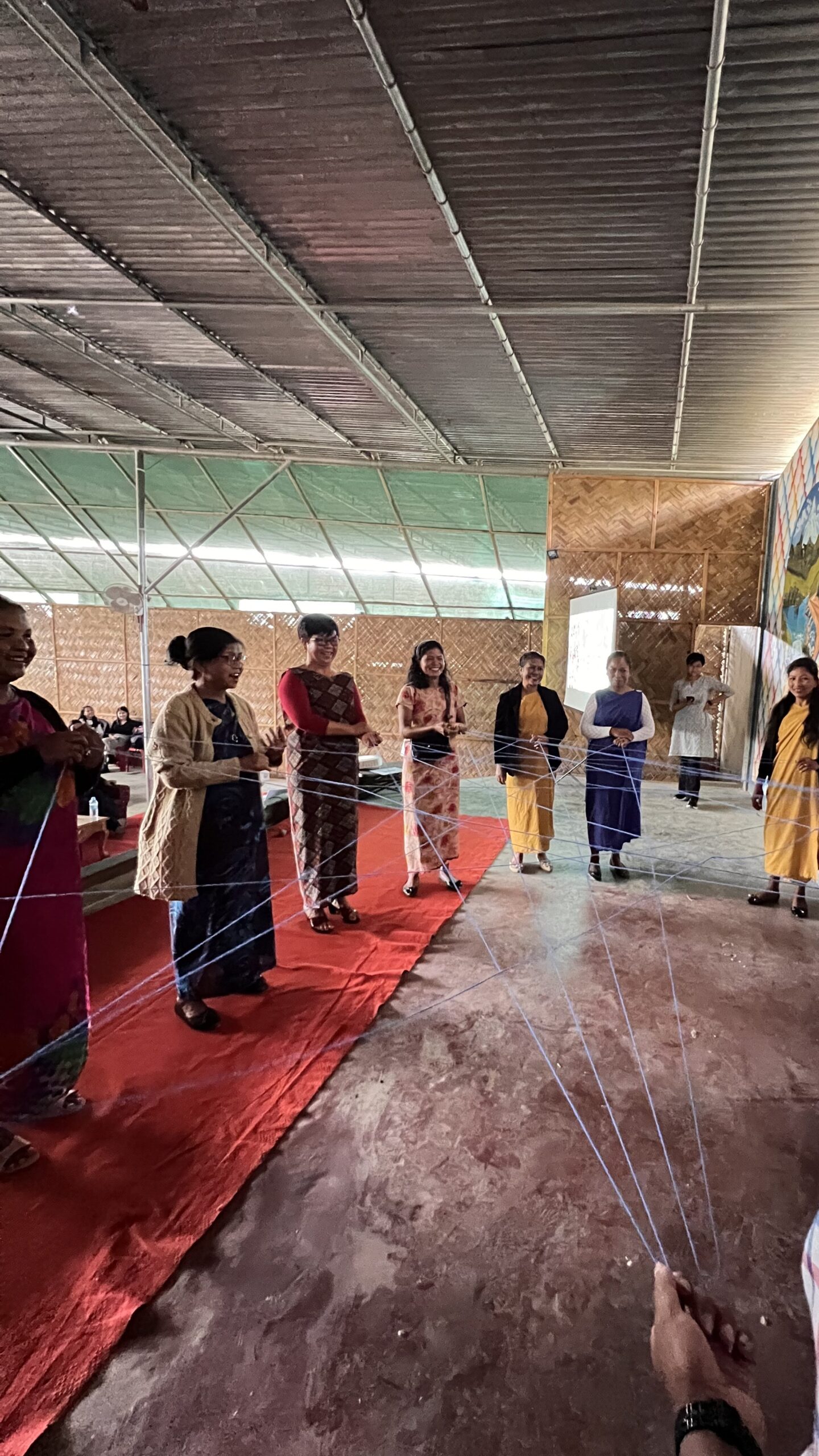
During the convention, several discussions were held on the topic of Anganwadi Centers (AWCs) and their services, as well as the establishment of Early Childhood Development (ECD) centres.
A summary of the discussions and the key points raised by the community:
During the community discussions, several important points were raised regarding Anganwadi Centers (AWCs) and their services. Community members recognized the significance of AWCs, acknowledging the provision of the Supplementary Nutrition Program (SNP) and teaching activities. However, concerns were expressed about the limitations of Mini AWCs without an Anganwadi Worker’s Helper (AWH), which hindered effective teaching. The community strongly advocated for the inclusion of AWHs in these centres to allow Anganwadi Workers (AWWs) more time for teaching and conducting home visits.
Infrastructure and facilities emerged as a key topic of discussion. Specifically, participants highlighted the small size of certain AWCs, resulting in overcrowding when accommodating numerous children. To address this, the community suggested the need for additional rooms that could serve various purposes, such as storage, play areas, and managing challenges during the monsoon season. Basic amenities like cleanliness, hygiene, electricity, drinking water, and adequate toilet facilities were also emphasized as crucial requirements for AWCs.
Furthermore, community members emphasized the importance of incorporating recreational activities within AWCs to create an enjoyable learning environment. They believed that by making the learning experience engaging and fun, children would be motivated to attend regularly and actively participate. Another focus of the discussions revolved around ensuring continuity in children’s education. The community recommended the provision of certification indicating children’s attendance at preschool, facilitating their smooth transition and admission into primary schools. This certification process would require AWCs to meet the standards of a standard preschool.
Overall, the discussions provided valuable insights from the community, shedding light on improving AWCs, addressing infrastructure challenges, and promoting quality education for children, aligning with the objectives of the Meghalaya ECD Mission.
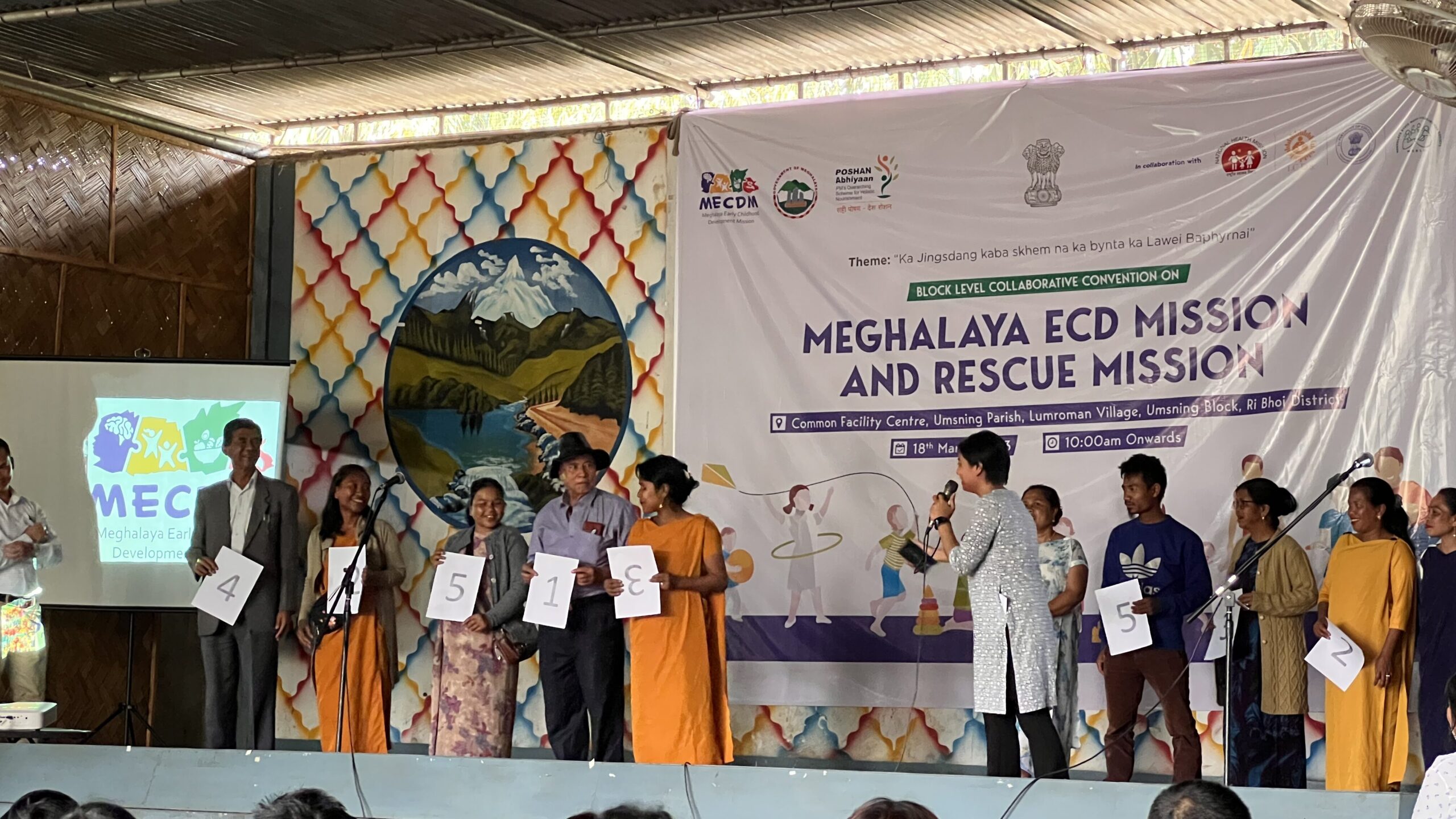
During the convention, there was a strong emphasis on creating a collaborative environment where all participants could contribute their insights, experiences, and suggestions. The discussions on AWCs, ECD centres, and the role of the community provided an opportunity for stakeholders to share their perspectives and collectively address the challenges and opportunities in early childhood development.
Way forward
To propel the ECD mission in the Umsning Block, a series of crucial steps have been outlined:
Firstly, the Block Development Officer (BDO) will oversee the implementation of the ECD collaborative meeting in the Umsning Block. This ensures effective coordination and supervision of the ECD activities. Dedicated block and cluster teams, comprising officials from collaborating departments, will be established. Promoting community involvement, they will extend the reach of the ECD Convention activities to the village level.
Furthermore, a calendar outlining the ECD collaborative meeting schedule will be developed by the block team. This ensures systematic planning and execution of the activities by the cluster team. Additionally, the Meghalaya Early Childhood Development Mission (MECDM) team will establish a reporting mechanism at the block and cluster levels. This enables continuous monitoring and evaluation of the ECD initiatives.
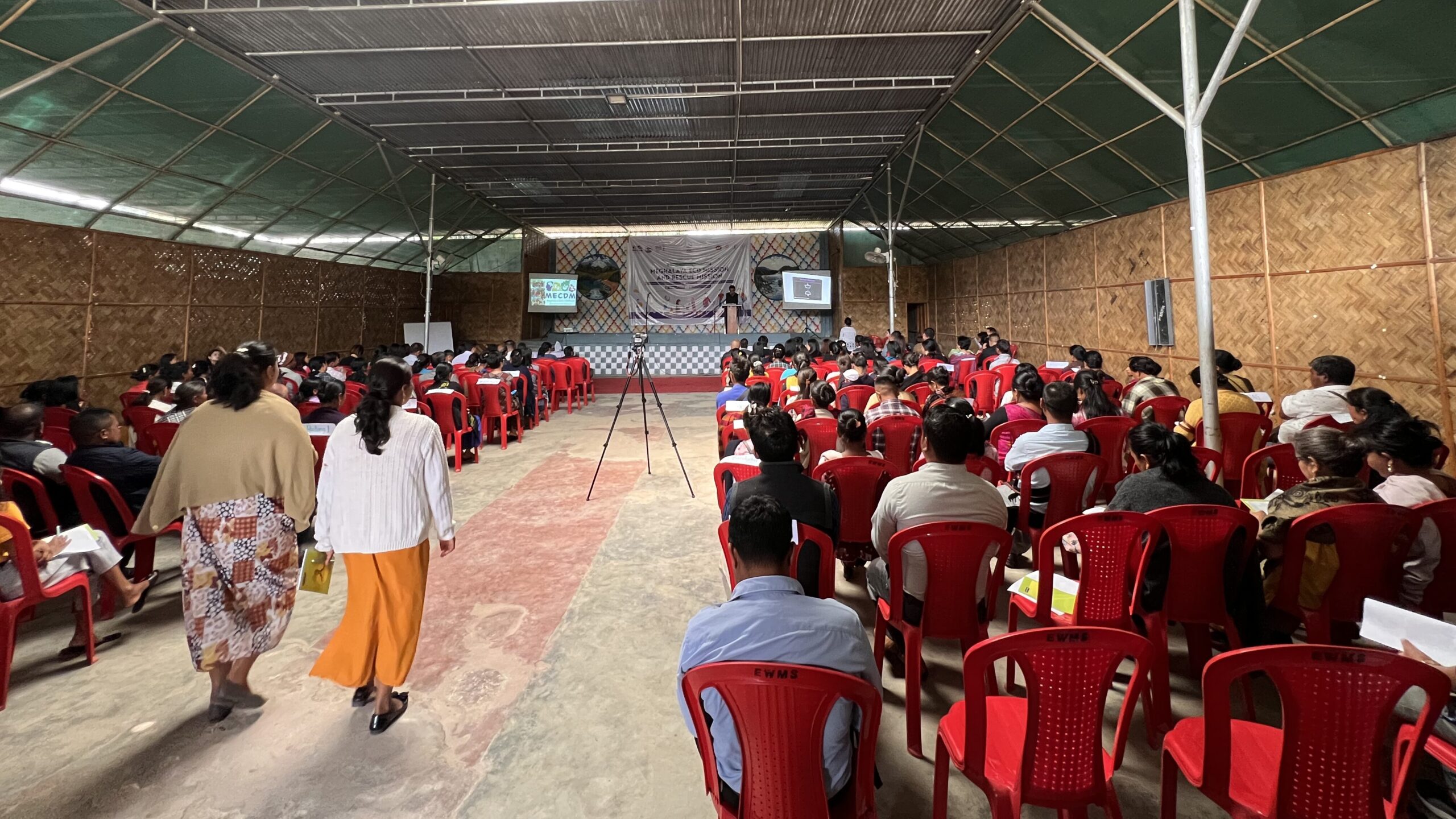
The collaborative meeting aims to raise awareness about ECD, foster community ownership, and promote community involvement. The Village Organization will play a crucial role in identifying ECD facilitators from each village. Efforts will also be made to identify suitable land or space within LP school premises or separate locations for constructing AWCs in uncovered villages. This ensures access to quality ECD facilities for all eligible villages.
As the Meghalaya ECD Mission moves forward with its goal to improve early childhood development in the state, it is expected that many more conventions and collaborative efforts will be held in the future. These events are crucial in bringing together stakeholders, experts, and community members to share their knowledge, ideas, and experiences in addressing the challenges faced by young children in the state. By fostering a collaborative approach, the Meghalaya ECD Mission can create more effective and sustainable solutions that will benefit the children and families of Meghalaya for years to come.
